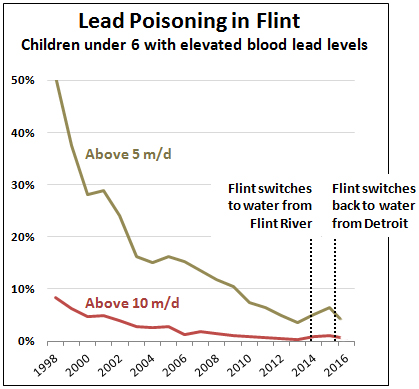Report states Governor Snyder bears significant legal responsibility:
"The governor is responsible for overseeing the faithful execution of state law, including accountability for state agency decisions. With regard to Flint, there are conflicting accounts as to when the Governor became aware of the water quality issues or Legionnaire’s disease outbreak. But reports, interviews, and released emails suggest that by October 2014, the Governor’s staff was sufficiently aware of water quality issues in Flint that several top aides were arguing that Flint should return to using water from DWSD. It appears that the Governor received regular assurances from MDEQ and MDHHS officials that the water was safe and healthy, but also that the Governor and/or his staff were aware of Flint residents’ mounting complaints about the water. Given the number of emails circulating among his own staff about Flint water quality concerns, the escalating complaints from Flint residents, and even state offices’ determinations to stop using Flint drinking water due to water quality concerns, critics are skeptical about the Governor’s claimed ignorance of the crisis as it unfolded.
Even setting aside the Governor’s appointment of an emergency manager, discussed more fully below, he bears significant legal responsibility for the crisis based on his supervisory role over state agencies. The Governor had adequate legal authority to intervene—by demanding more information from agency directors, reorganizing agencies to assure availability of appropriate expertise where needed, ordering state agencies to respond, or ultimately firing ineffective agency heads — but he abjured, either due to ignorance or willful neglect of duty. Flint residents’ complaints were not hidden from the Governor, and he had a responsibility to listen and respond.
The governor also has exclusive authority to issue a state level declaration of emergency or disaster. Upon doing so, the governor may request federal emergency assistance (financial or otherwise), suspend statutes, orders, or rules as necessary for the emergency response, issue necessary orders or directives that have the force and effect of law during the emergency, and allocate resources, including personnel and public or private property (with appropriate compensation), to respond to the emergency. The Governor finally declared an emergency in Flint on January 5, 2016—three months after Flint and Genesee County declared local emergencies. The Governor’s declaration was crucial to getting needed supplies to Flint and should have been made as soon as the extent of the water contamination in Flint came to light."

